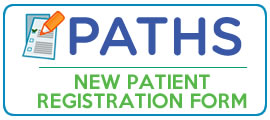What do Veterinarians do?
Veterinarians are educated and trained in the medical and surgical care of animals.
What might Veterinarians do in a workday?
- companion animals, predominantly dogs and cats, but including many other companion species, such as “pocket” mammals, birds, reptiles, and fish. As companion animals assume greater emotional value, veterinarians are increasingly considered to be members of the family-care team.
- food-producing animals, such as cattle, swine, sheep, poultry, and commercial fish; thereby ensuring a plentiful, safe food supply.
- horses, including those used for performance and pleasure.
- zoo animals and wildlife, both terrestrial and aquatic species; and including environmental/ecosystem health and conservation.
- biomedical research and laboratory animal medicine, in governmental, industrial and academic organizations, in support of health research and development.
- public health and food safety, especially protecting against toxic chemicals and drugs and infectious microorganisms that are transmissible from animals to humans. Veterinarians are an integral part of national defense teams organized to counter agro- and bioterrorism.
- disaster response and relief efforts; in addition to providing care for individual animals after natural and man-made disasters, veterinarians protect public health by assisting local authorities in addressing disease risks.
- military veterinarians provide care for military animals as well as educate farmers in undeveloped countries how to keep their animals healthy and safe.
- veterinarians in government service help write and enforce legislation to protect animal health, human health, and the country’s food supply.
How much do Veterinarians earn?
- $92,000 - $167,000
How do I become a Veterinarian?
Students interested in becoming veterinarians should take the most challenging high school courses available in science, math, and English, including advanced placement courses.
To enter a graduate program in veterinary medicine, students must complete a minimum of two years of pre-veterinary study. Most successful candidates complete a four-year program.
Licensed veterinarians must earn a doctoral degree in veterinary medicine from a school or college of veterinary medicine accredited by the American Veterinary Medical Association Council on Education and must pass both national and state examinations.
Where else can I learn about becoming a Veterinarian?
Virginia Veterinary Medical Association
3801 Westerre Parkway, Suite D / Henrico, VA 23233
tel: (804) 346-2611 or (800) 937-8862 / web: www.vvma.org
American Veterinary Medical Association
1931 N. Meacham Road, Suite 100 / Schaumburg, IL 60173-4360
tel: (800) 248-2862 / web: www.avma.org
American Veterinary Medical Foundation
1931 N. Meacham Road, Suite 100 / Schaumburg, IL 60173
tel: (800) 248-2862, ext. 6689 / web: www.avmf.org
Association of American Veterinary Medical Colleges
1101 Vermont Ave., N.W., Suite 301 / Washington, DC 20005-3536
tel: (202) 371-9195 / web: www.aavmc.org
State License Requirements for Veterinarians:
A license is required to practice as a veterinarian in the Commonwealth of Virginia. For more information on licensure, applications, and forms, visit www.dhp.virginia.gov/vet.
Virginia Board of Veterinary Medicine
Perimeter Center
9960 Mayland Drive, Suite 300 / Henrico, Virginia 23233
Phone: (804) 367-4497 / Email: vetbd@dhp.virginia.gov


